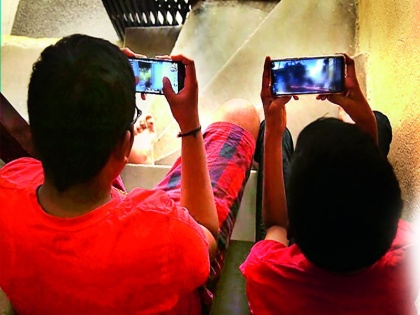Madras High Court Rules Watching Child Porn in Private Not a Crime under POCSO, IT Act
By Lokmat English Desk | Published: January 13, 2024 08:16 AM2024-01-13T08:16:51+5:302024-01-13T08:17:13+5:30
In a recent decision, the Madras High Court has declared that watching child pornographic videos in private does not ...

Madras High Court Rules Watching Child Porn in Private Not a Crime under POCSO, IT Act
In a recent decision, the Madras High Court has declared that watching child pornographic videos in private does not constitute an offense under the Protection of Children from Sexual Offences (POCSO) Act or the Information Technology (IT) Act. The court, presided over by Justice Anand Venkatesh, emphasized that to trigger offenses under the POCSO Act, the involvement of a child or children in the creation of pornographic material is necessary.
According to a report of LivLaw, To make out an offence under Section 14(1) of Protection of Child from Sexual Offences Act, 2012, a child or children must have been used for pornography purposes. This would mean that the accused person should have used the child for pornographic purposes. Even assuming that the accused person had watched child pornography video, that strictly will not fall within the scope of Section 14(1) of Protection of Child from Sexual Offences Act, 2012. Since he has not used a child or children for pornographic purposes, at the best, it can only be construed as a moral decay on the part of the accused person,” the court observed.
The case in question involved a man facing criminal proceedings for allegedly downloading child pornographic material on his mobile phone, following a complaint received by the Additional Deputy Commissioner of Police. While forensic analysis confirmed the presence of such content on the accused's mobile phone, the court concluded that there was no evidence of the accused using a child for pornographic purposes. The ruling deemed the act as a moral lapse rather than a criminal offense.
The accused had petitioned the High Court to quash the criminal proceedings initiated against him, citing the lack of involvement of children in the creation of the pornographic material.
Open in app